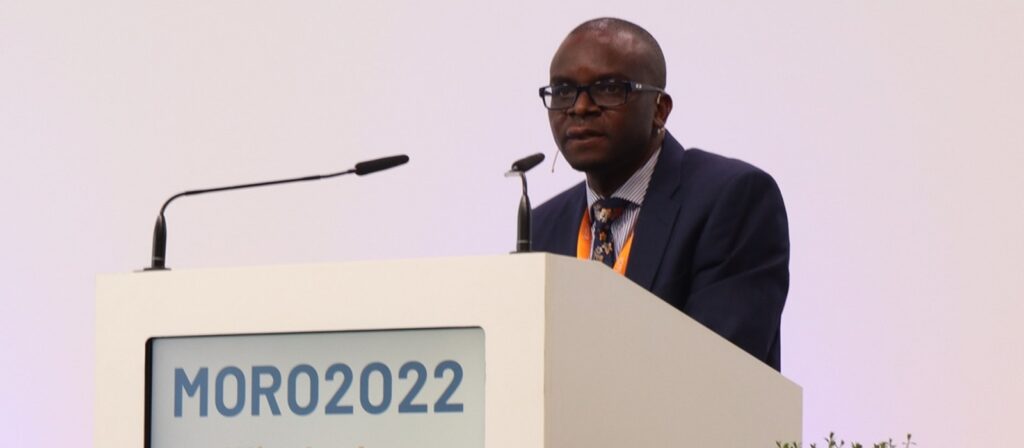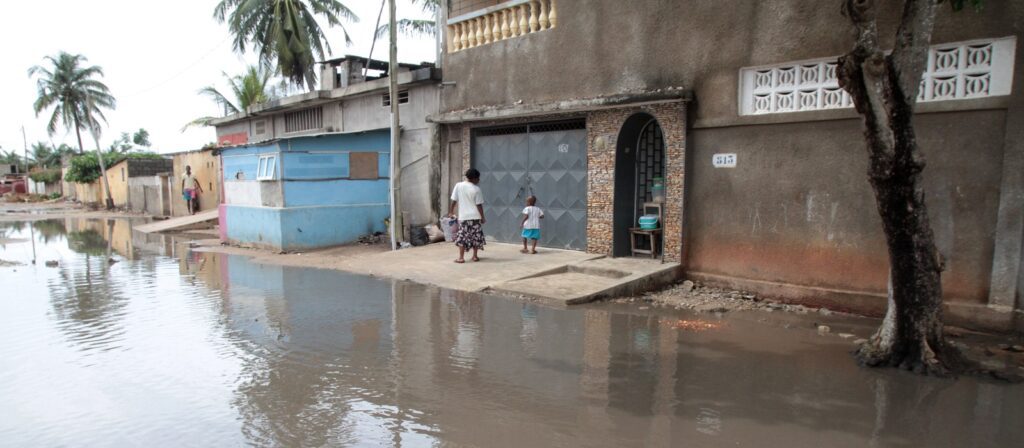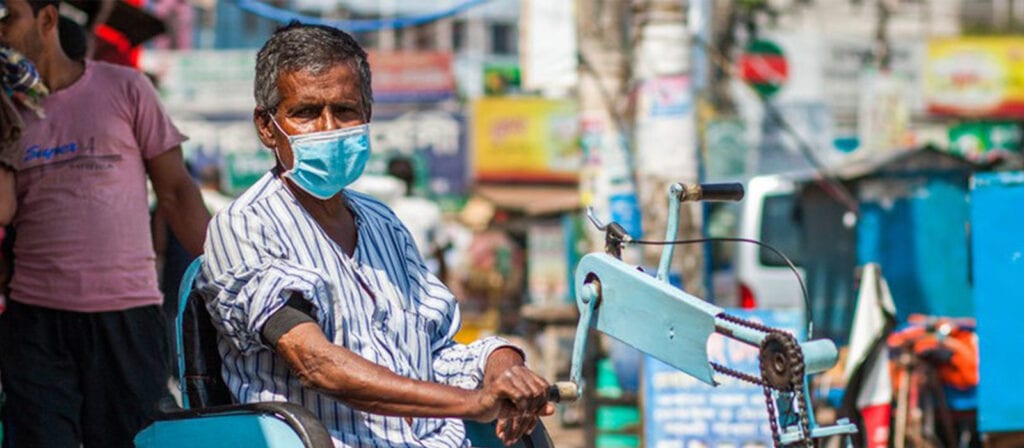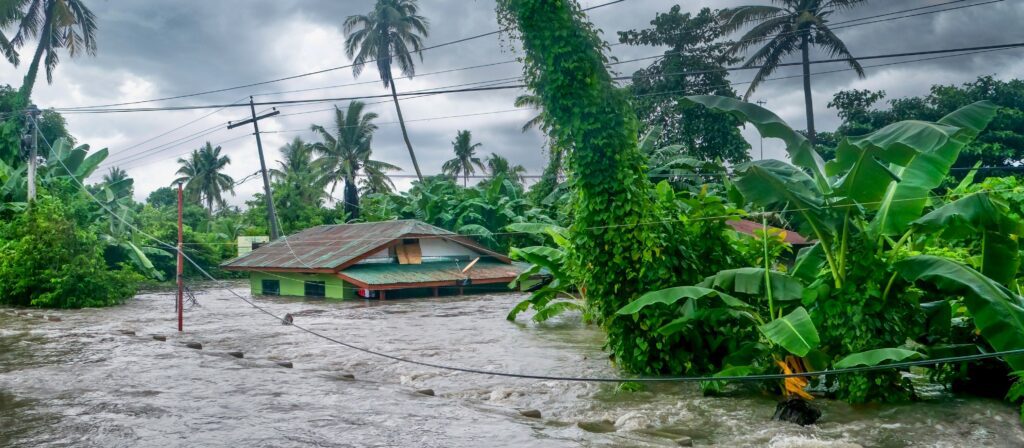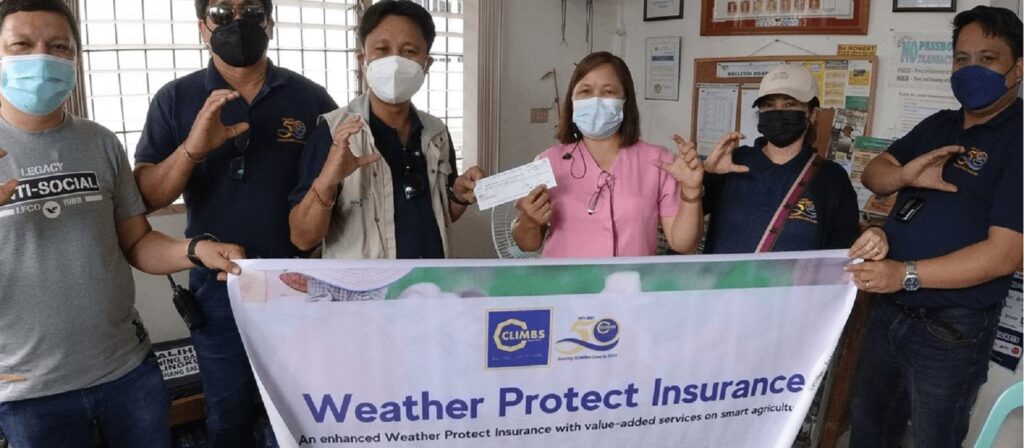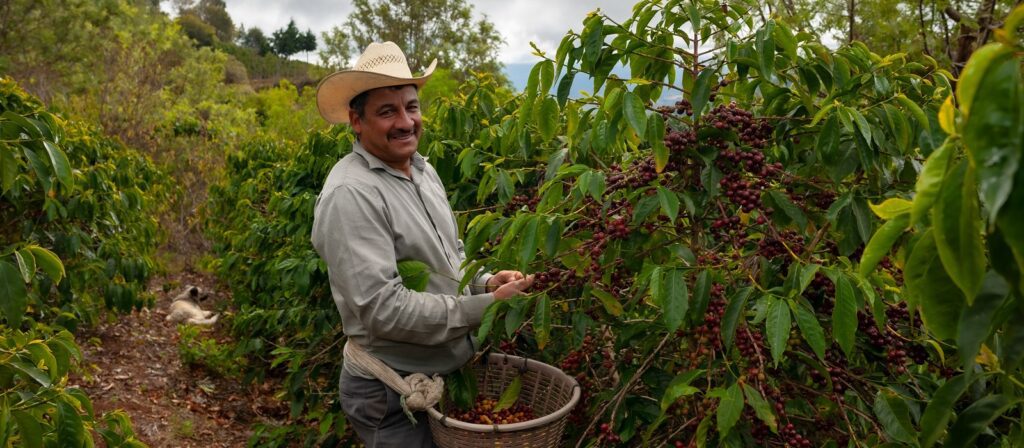In 2019, Côte d’Ivoire faced severe rainfall deficits and drought during the 2019/2020 agricultural season. These extreme weather events affected mainly the centre and north of the country and left thousands of people in a very vulnerable situation. To mitigate this crisis, Côte d’Ivoire, a Member State of the African Risk Capacity (ARC) since 2014, has benefited from a disbursement through parametric insurance of USD 738,835 in 2019 and another USD 2,185,100 in 2020 to enable vulnerable populations in these regions to carry out income-generating activities, following the negative impacts of the drought they suffered. ARC went to Central Côte d’Ivoire, to Bouaké, in the Gbêkê region, to meet these communities and learn how ARC’s pay out helped just some of the thousands of people impacted across the country. Here are their stories.
The high temperatures and the ambient humidity remind us that we are in the rainy season which affects the whole northern half of Ivory Coast from July to September. At the gates of Bouaké, a dense and luxuriant forest welcomes us. With a little over two million inhabitants, it is one of the most populated cities in Côte d’Ivoire and is characterised by immigration from Mali, Burkina Faso and Niger.
Arriving in Bouaké, we head for the village of Somelasou, in the sub-prefecture of Brobo. On the way, the rainforest passes by at high speed. After an hour’s drive we see the first houses in the village. We are welcomed by Michel Amani, an agent at the Brobo social centre. Sitting under a tree, a group of people composed of men and women who have benefited from ARC’s assistance through the Government of Côte d’Ivoire, are waiting for us. Among these people, Adjoua Koffi, is walking towards us with a determined step. A widow and head of a large family, she tells us how the money she received has helped improve her living conditions.
“I am very happy to see you. I was explained the purpose of your visit and I can say that the support I received really saved my life and my family’s life,” she says. “Not only did I have enough to feed my children, but I was also able to clear my field and pay for new seeds. I am now more self-sufficient than before,” she adds.
Sitting on the ground, Adjoua Bamélé, listens attentively to her friend and namesake, tell her story. She too received 50,000 CFA francs to cope with the catastrophic 2019/2020 agricultural season.
“I used 10,000 CFA francs of the money I received to participate in a community activity project in the village. The rest was used to pay for the schooling of my grandchildren who live with me,” she says.
Some community members like René Ndri Yao, 66 years old and father of a large family with 17 children, see the assistance received as a lifeline.
“I used to use the money from my crops to feed my family and pay for my children’s schooling and supplies, but with the water shortage, this was no longer possible. With the assistance I received, I can continue to provide a future for my children,” says René, with a serious look on his face.
“Thanks to ARC’s assistance, we were able to raise awareness in the villages about the importance of community projects. In each village we monitored, people contributed to income-generating activities. Despite the difficulties, these projects have contributed to strengthening the resilience of the communities and initiated their social development,” says Michel Amani.

Five kilometres from Somlaso, the village of Adikrofoundi has also suffered heavy damage because of the long months of water shortage. Hidden among the trees, this village is cited as an example by many. With the help of the government, its inhabitants have developed and implemented an income-generating activity that has enabled them to improve their living conditions. By diversifying their activities in this way, they can sustain their sources of income and strengthen their absorption and resilience to the various shocks and stresses linked to climate change.
In conversation with Clementine Kouakou and Awo Nguessan we learn more about an initiative that has shown solidarity and unity within this community.
“After the terrible drought we experienced, we had to organise ourselves to survive. That’s when we came up with the idea of buying plastic chairs and a tarpaulin and renting them out during the ceremonies to increase our income. We all worked together and today, each of us has been able to either increase his field, buy seeds or take care of his family’s needs,” says Clementine Kouakou.
“Of the 50,000 CFA francs I received, I gave a contribution of 10,000 CFA francs and used the remaining 40,000 CFA francs to start my business selling soap and cakes. Thanks to this, I manage to have a profit of 1,000 to 1,500 CFA francs per day which I use to run my house,” she adds.
Awo Nguessan has also been able to expand her business. A few months ago, she was selling rice and up to 4 litres of oil per month at the market, but thanks to the money she received and invested, she is now able to sell even more rice and almost 25 litres of oil. This has significantly improved her social situation and her integration in the village.
3 km from the village, Sébastien Kouamé Koffi, also living in Adikrofoundi, welcomes us to his tomato plot.
We find him turning over the soil and inspecting his future crop. Sébastien is very proud of his work. With a big smile on his face, he shows us the tomatoes that are already starting to ripen.
“In 2 to 3 weeks I should be able to start my harvest. It has not been easy to get to this point but today I can appreciate the result of my work” says Sébastien.
After receiving assistance from ARC, he too contributed 10,000 CFA francs to the community project and used the rest of the money to buy seeds, pesticides and fertiliser. He also expanded his field to, he explains, “double his harvest and his income”.
After receiving assistance from ARC, he too contributed 10,000 CFA francs to the community project and used the rest of the money to buy seeds, pesticides and fertiliser. He also expanded his field to, he explains, “double his harvest and his income”.
After our visit to Somelassou and Adikrofoundi, we headed for the village of Afotobo, 45 minutes from Bouaké. There, we met the village elders who confirmed to us that the selection of beneficiaries who have received assistance was done according to a very strict criteria.
“We targeted the three most affected neighbourhoods of Afotobo where we counted the inhabitants. From these, we chose those who were the most indigent in the presence of the village chief, the president of the youth, the president of the women and the village elders. There was no discrimination or choice based on affinity. Only the social criterion was considered,” confirms Pierre Yao.
A short distance from the village chief’s house, we had the pleasure of meeting Jacqueline Kouamé, a mother of six. Sitting in her open-air kitchen, she was in the process of preparing lunch for her family.
“From the 50,000 CFA francs that I received, I used 30,000 CFA Francs to buy cassava and make *athieke, which I sell in Abidjan (the capital). This gives me a profit of 5,000 to 10,000 CFA Francs from each sale,” says Jacqueline, with a smile.
After our discussion with Jacqueline, we were informed that one of her neighbours would also like to show us something. He led us to his field where his wife, Clémence Nguessan, is waiting for us. Joseph Yao Koffi is 68 years old and this field that he loves to cultivate with his wife and children, is one of his most cherished possessions.
“Look at this field…. Isn’t it beautiful? I have 2 hectares where my family and I grow yams, cassava, chilli, maize and okra. Using the money that I received, I plan to expand my field and maybe one day, my grandchildren will benefit from this investment,” says Joseph, with much excitement in his eyes.
Before we completed our field mission, we went to the headquarters of the Regional Directorate of Social Protection of Gbêkê where its Director, Sib Gotouré, was waiting for us.
“We are pleased to hear about the assistance from ARC because it complements one of our key projects — the productive social safety net project. Indeed, some villages that were not beneficiaries of the productive social safety net project have been integrated and have benefitted from this financial support”, informs the Director.
“Thanks to these two government interventions, we have seen the development of new practices in the villages after our awareness campaigns. Some villages have created income-generating activities such as cassava cultivation, poultry farming and many others,” he adds.
“There is a real need on the ground, and we can only hope that there will be additional support to meet the high demand,” he said, closing his remarks.
This concluded our journey through the land of Gbêkê. The stories we heard there were touching and fully demonstrated that with a little help, it is possible to build a better future and a solid foundation for better resilience, an entrepreneurial mindset and inclusive society.
This is the value of anticipatory and forecast-based natural disaster risk management (DRM) which promotes adaptation and resilience. Without the ARC DRM approach which avails financial assistance to participating Member States, vulnerable communities would resort to negative coping mechanisms, including forced migration, selling off productive assets, etc.
About African Risk Capacity (ARC)
The African Risk Capacity (ARC) is a Specialized Agency of the African Union established to help African governments improve their capacities to better plan, prepare, and respond to extreme weather events and natural disasters. Through collaboration and innovative finance, ARC enables countries to strengthen their disaster risk management systems and access rapid and predictable financing when disaster strikes to protect the food security and livelihoods of their vulnerable populations.
Established in 2014, as the commercial subsidiary of the ARC Group, ARC Limited is a mutual insurance facility providing risk transfer services to African countries through risk pooling and access to reinsurance markets. It provides natural disaster insurance relief to its African Union Member States, including Burkina Faso, Mali, Mauritania, Niger, Senegal, The Gambia, Malawi, and Kenya. Along with its partners, which provide premium support, the insurer has already paid over USD 65million to seven countries to provide drought relief and address the economic concerns these countries’ most vulnerable citizens face.
ICMIF would like to thank ARC for permission to share this article. All images are credited to ARC/Simon Pierre Diouf.
